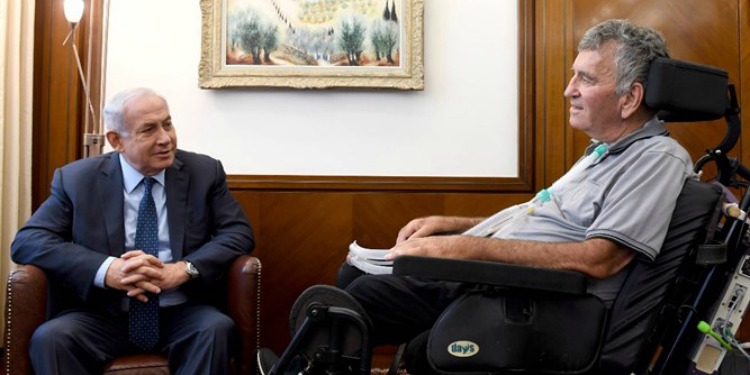Father of Lone Soldiers
The Fellowship | January 18, 2019

The Fellowship and our faithful friends have long supported Israel’s “Lone Soldiers” — those members of the IDF who come to protect the Holy Land from other countries, serving in a place where they have no family or home. Zvika Levy, himself a lone soldier and a longtime veteran of the IDF, became known as the “father of lone soldiers,” for his work in helping these selfless warriors. The Times of Israel tells us of Levy’s recent passing, after a long fight with the dreadful muscular disease, ALS. May his memory be a blessing:
Zvika (Zvi) Levy, an Israel Prize-winning social activist known as “the father of lone soldiers” in Israel, passed away on Saturday at age 70 after years of suffering from amyotrophic lateral sclerosis (ALS), a muscular disease…
Levy is a lifetime achievement recipient of the Israel Prize, awarded to him last year.
Levy founded the Lone Soldiers organization in 1997, which supports some 3,500 young people annually who leave their families, usually abroad, to volunteer for Israeli army service. The organization also serves more than 1,500 Israeli soldiers who come from disadvantaged backgrounds or are estranged from their parents.
After a long career in the paratroopers unit, he has looked after lone soldiers from more than 40 countries, with most coming from the former Soviet Union, the US, Europe, Ethiopia, and South America…
In the ceremony for the Israel Prize in 2017, Levy accepted his award from a wheelchair, to a standing ovation.
“It began 25 years ago or more,” Levy explained in a video made for the event. “Raful [Rafael Eitan, the late chief of staff, who developed a program for disadvantaged youth to do army service] said, ‘Listen Zvika, there are kids who don’t enlist, who sit around in Migdal HaEmek [a northern town with a high immigrant population], you won’t get them to come. I’ll help you to enlist them.”
Levy went on, “I would get up at four in the morning to work in the fields and at 3 p.m., I would wander around the development towns [often poor towns established in the 1950s to house new immigrants] and slowly recruit these youngsters…”
